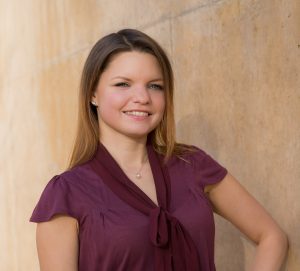Hanna first caught my eye on Instagram, under the name @HannaDiabetesExpert, as she seemed like an eager soul to help others across the world. She has an unconventional approach to managing her type 1 diabetes and I believe her story is not only inspiring others but helping make bold changes too. I am excited to share this interview with you, and please let us know your thoughts on Hanna’s story. Thank you, Hanna!
Tell us a little about yourself!
I’m a public speaker, writer, and advocate who loves to help fellow people with diabetes to feel healthier and happier with their own care. I’m passionate to find motivational and inspiring ways to bring about a change in diabetes management, and I’ve developed a profound understanding of how things like nutrition and lifestyle choices can balance diabetes. I also co-organise Europe’s first 100% low carb events, called The Low Carb Universe.
How long have you had diabetes?
I’ve had Type 1 Diabetes for 33 years, since 1985.
What eating style have you found to be most helpful in managing blood sugars? What hasn’t worked?
I was eating a “normal diabetic diet” for the first 26 years after diagnosis, including skimmed milk with meals and extra points for fruits as dessert, not to forget the 45-60% other carbs on my plate. Throughout these years, I could never manage my diabetes like I was expected to, my A1c was always way too high, too many fluctuations in my blood sugar, I was overweight and using insulin like it was water. I quickly got the label of “brittle diabetic” in my file. When I did my education to become a nutrition coach, my teacher, who is not a medical professional, but has more common sense than most, saved my life. When we were learning about carbs, insulin and how they work in the body, he pointed me out in front of the class and said “Hanna, you don’t even make any insulin. If I were you, I’d think once and twice about what I was eating”. That was my aha-moment, and I started cutting down on carbs soon after that. Today I eat very low carb, protein-rich and healthy fat, as I’ve found it works the absolute best for me, my diabetes and my lifestyle.
What type insulin do you use and what insulin dosage method work best for you and your lifestyle?
I went through a lifestyle transformation when I finally said yes to the pump 5 years ago. It’s vastly improved my life, and I love that I can be so spontaneous with it, for example with basal rates. I use Novorapid (Novolog) and have gone from taking about 100 units a day to 15-25.
How do you treat a low blood sugar?
Always, always, always with glucose tablets. I treat them like medicine and they are the most exact way to get to a safe, healthy range again without overshooting. Treating hypos with food never worked for me.
Do you exercise? What do you like to do for exercise? How do you handle activity with controlling your blood sugar?
I hate exercise, but I love movement! I do a lot of walking, yoga, and body weight exercises, for example. For these movement forms, I don’t feel any pressure, like having the right gear paying expensive memberships, which is also good because I travel quite often. I personally rarely have problems with blood sugar and activity, and if I do, I can quickly correct it back into range again as I don’t have masses of active insulin. But I do know it is a huge struggle for many others.
What tips would you rattle off for someone who is trying to improve their blood sugar control? Or even for someone who is newly diagnosed with type 1 diabetes?
There is always a way! You need to find YOUR way of managing diabetes, which takes some researching. And it definitely doesn’t have to look like anyone else’s or what your healthcare professionals tell you. That being said, with great freedom comes great responsibility. If you want to change your health, you need to be ready and willing to take it into your own hands.
What does a typical day of food look like to you?
I get up, have a few glasses of water, as well as a giant cup of herbal tea to rehydrate my body after a long nights sleep. I very rarely have breakfast, as I’m generally not hungry then and don’t see the point of stressing my body with food if it doesn’t signal for it. It also gives my blood sugar a chance to stay stable for a few more hours. I wait with eating until lunchtime, 12-1pm, when I have vegetables, protein and fat, such as an omelet with vegetables and ham, smoked salmon and avocado, or just the leftovers from dinner the night before. I don’t typically snack unless my body tells me to. Then, around 7-8pm, I have dinner, which is again vegetables, protein, and fats, like a burger patty with spinach sautéed in bacon fat, chicken with cauliflower rice or salmon with pesto and broccoli.
To some, eating like this might sound boring. To me it means freedom not to feel constant hunger, being able to push meals around according to my schedule, as well as stable blood sugars.
What is the hardest part of being diabetic? What is the best part?
The hardest part for me is worrying about the future, possible complications, and limitations in life diabetes may bring me. Even if I’ve found my way of dealing well with the emotional and mental part of living with a chronic illness, it still gets to me sometimes.
The best part is that I know my body so much better than many others and can tell quickly if something isn’t right somewhere.
Any closing thoughts?
Dare to go out there and find what works for you and your diabetes management. It’s a difficult illness to handle, but it’s entirely possible to live and thrive with it on a daily basis.



 Tell us a little about yourself!
Tell us a little about yourself!
Leave A Comment
You must be logged in to post a comment.